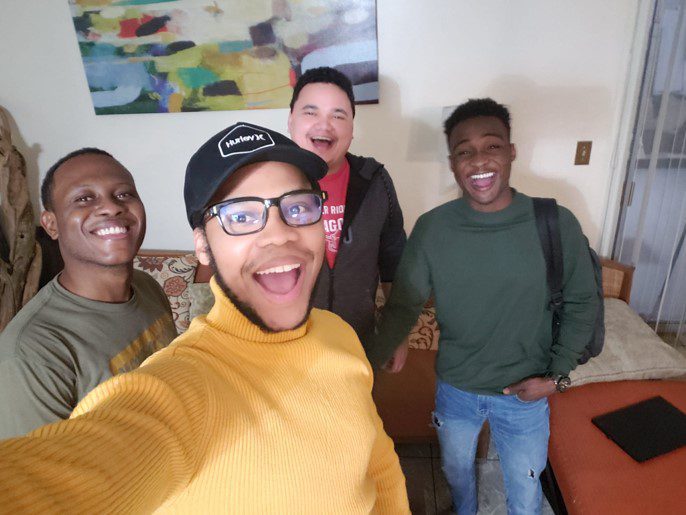Mac Alabre is on a mission to leverage technology to create efficiencies in the public sector and, ultimately, improve citizens’ lives.
Since 2019, Alabre and his co-founder Rohansen Joseph have been working on Lien Library, a digital toolkit designed for both public servants and members of the public.
Liens are a big deal. They represent a debt that a property owner owes a municipality, ranging from less than $100 to over tens of thousands of dollars. For prospective buyers, purchasing a home with a lien would mean that they are on the hook for paying the previous owner’s transgressions. From the government’s perspective, liens represent money left on the table.
Alabre learned the ins and outs of liens over his five year tenure working as a financial analyst for the City of North Miami. “When I worked in the lien department, I found out that they had not digitized property lien data,” he explained to Refresh Miami. That meant that every time a citizen requested lien information on a property, the search would have to be done manually – often involving trips to four or more internal departments.

This lack of digitization makes finding information related to liens a timely and costly process. It varies by municipality, but lien inquiries can easily cost upwards of $300 and take the better part of a month. If you’ve ever done a real estate transaction in South Florida, you’ll know that just a few days can make or break a deal. And for local governments, these requests can put a strain on resources that are already stretched thin.
Lien Library uses proprietary Optical Character Recognition technology to digitize physical lien records, making them more accessible to the general public. They have sourced data from Miami-Dade and Broward counties to develop a map that displays all the liens on properties at the county level.

For now, people interested in learning about liens at the city level can pay Lien Library to do the heavy lifting for them. However, Alabre’s ultimate goal is to partner with cities to provide their data online.
Alabre noted that city-level partnerships will be good for consumers, since they will be able to more easily access lien data. But he also highlighted the benefit for cities, who can use Lien Library’s platform to see an overview of the liens requested and processed, on top of digitally accessing the lien data itself.
“We are here to make these processes more efficient for cities,” said Alabre. “When we support our local government, we indirectly help our community.”
On top of leading Lien Library and his work at the City of North Miami, Alabre is also undertaking a PhD in Industrial-Organizational Psychology at Florida International University, where he also earned an MBA and bachelor’s.
Alabre has lived in South Florida since he left his home country of Haiti in 2015 and expressed excitement about the recent growth of the Miami tech scene. “This movement is necessary and going to benefit Miami now and into the future.”
Learn more about Lien Library by visiting its website.

Pictured at top of post, left to right: Lien Library’s co-founders Joseph Rohansen (COO) and CEO Mac Alabre, and Eduardo Mejia (IT Director), and Jovensky Saint Victor (Relations Manager). Photos provided by Lien Library.
Read more about civic tech on Refresh Miami:
- General Catalyst launches civic tech vertical, chooses Miami as HQ
- Civic Hackers and The Future of the Tech Workforce
- Gridics is making zoning less of a headache for U.S. cities
- Superlogic lands $7.6M strategic round to pioneer the future of loyalty points - April 19, 2024
- AI, climatetech and healthtech reign supreme on Day 1 of eMerge Americas’ 10th anniversary - April 18, 2024
- Brought together by tech, kept together by culture: Miami’s protagonistic role in LatAm’s startup story - April 15, 2024





